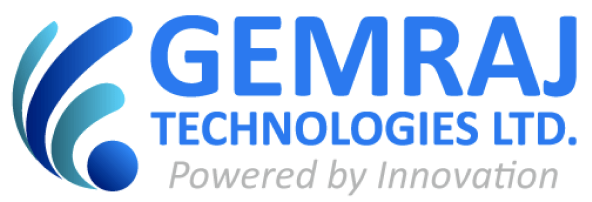Such extensive presence of technology in all walks of life also means that it is a field that offers career opportunities because every single industry today, irrespective of its size or nature, requires digital experts. Furthermore, technology is a very diverse field with more to it than just coding and calculations. It would be an understatement to say that computer science is a comprehensive field because new technology is being introduced every other day. So naturally, there’s massive scope for career growth here.
Jobs in the IT sector are divided and differentiated based on many factors and which one you choose depends entirely on your interests and skills. For instance, if you have a knack for technology and a deep interest in management, you can opt for specialities such as management information systems (MIS) or customer support. Or suppose it’s coding and developing new technologies that you have an interest in. In that case, you could select posts such as web developer, full-stack developer, software engineer, or computer programmer. Additionally, each sub-discipline such as data analytics, artificial intelligence, cybersecurity, and cloud computing is a distinct professional field of its own, offering myriads of job opportunities.
Data analytics is the field where data and technology combine to produce insights for business use. In this particular field, a graduate with a degree in computer science can secure jobs such as data scientist, data analyst, business analyst, data engineer and database administrator. Although closely related to data science, artificial intelligence is still an unmistakably separate sector that offers jobs opportunities such as machine learning (ML) architect, AI engineer, automation engineer and ML intelligent system researcher. Cloud computing is another promising technology that has become a crucial business feature today and offers many lucrative career opportunities.
Cybersecurity is one of the fastest-growing sub-specialities of the tech domain. As a matter of fact, the global cybersecurity market is estimated to reach $170.4 billion by 2022, according to Gartner. It’s also a sector that offers incredibly lucrative career opportunities as there are currently 3.5 million unfilled cybersecurity jobs globally, Cybercrime Magazine reports. Cybersecurity in today’s world, where a single breach can cost a business around $3.86 million (As per IMB Security), has become an increasingly crucial business feature.
What are transferable skills?
Transferable skills, also known as flexible skills, are the skills that help you everywhere, irrespective of what you’re doing. For instance, effective communication skills can be called transferable skills. Maybe you developed your communications skills via active engagement in school or college. Now imagine that you begin working as a business manager, seamless communication is an integral part of business management, so your ability to communicate clearly will definitely prove to be beneficial.
Now let’s assume you decide to switch careers and become a cybersecurity specialist. Your communication skills will help you just as much as they did during your business management job because communication is also a vital part of the cybersecurity domain.
There are two different types of transferable skills, hard skills and soft skills. Hard skills include mostly learned abilities such as programming or data analysis. Soft skills are usually inherent abilities like people management, team building, communication and time management.
Types of transferable skills in the IT field
Although some of the skills in the IT field can be job-specific, such as knowing how to use certain software programs, the majority of the skills that most IT professionals harbour are transferable. Let’s take a look at the most common transferable skills in the IT domain.
1) Problem-solving: Regardless of whether you are a programmer, IT manager, cybersecurity professional or cloud computing expert, problem-solving is an essential part of the IT domain. You are required to analyse situations, identify problems and design solutions in almost all IT jobs. Problem-solving is at the very crux of the field of technology as it’s the problems and challenges that breed innovation. There are problems at every step in the IT field and every IT professional gets ample training and practice in problem-solving.
2) Leadership: Most IT jobs entail copious amounts of collaboration and communication. IT professionals are regularly required to either work within teams or build and lead teams. Either way, they can develop the skills necessary to become competent leaders. Leadership skills are the key to securing senior positions in big MNCs. Companies are always on the lookout for professionals who have sound technical skills and can also organise teams, manage people and handle projects to meet business goals.
3) Attention to Detail: The world of digital technology is a very detail-oriented and skill-dominated one, where one single oversight can cause an entire system to come crashing down. Everything must be done according to predefined objectives and plans. Therefore, attention to detail is a skill that every IT employee needs to develop. An attentive, conscientious and responsible employee is revered in every company and helps to minimise losses and enhance profits.
4) Computer Skills: The most valuable transferable ability that an IT professional harbours is their aptitude for computing since, irrespective of your job in today’s digital world, most working individuals have to interact with computers in one way or another to complete their professional duties. In addition to this, most companies today rely on several software programs to store and transfer information in order to complement day-to-day business operations.
5) Creativity: Creativity is a universally adored and sought-after trait that gets ample encouragement and stimulation in the IT domain. Creativity is in everything that an IT professional does such as designing software programs, mobile applications and web apps.
6) Analytical Reasoning: Most IT jobs require professionals to tap into their analytical and logical faculties. They usually have a lot of data to deal with, which they use to identify patterns and design programs and strategies. All this training in analytical reasoning prepares them to excel in any professional setting.
7) Critical Thinking/Decision Making: IT professionals are also quick thinkers that can utilise and interpret information to make effective plans, strategies and decisions. Their decision-making ability is a respected trait in almost all the other professions. Quick decision-making is a task that involves thinking objectively and differentiating between opinions and facts.
8) Communication: Communication is necessary for every job and it’s common in every profession. An IT expert of any kind has to talk to a lot of people. Some have to listen to and communicate with customers, some have to understand client requirements and some have to collaborate with other professionals to complete project work. As a result, most IT professionals get an abundant amount of opportunities to sharpen their communication skills.
Conclusion
At Gemraj Technologies Ltd, we hold regular training programs to ensure vital transferable skills underpin the work at GTL. We also encourage our professional team to communicate and collaborate as we believe it increases productivity. At GTL, we have a broad range of tech services and boast a comprehensive, all-inclusive professional portfolio. Our technically qualified professionals allow us to offer timely and cost-effective services that you can rely on. Today, as one of the leading IT solutions companies in the UK, we credit our success to our professional team’s consistent, dedicated and tireless efforts.








